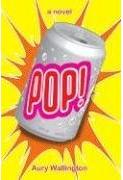People who find Borat or Jewtopia offensive are also likely to rail against the new release from Reboot Stereophonic Records for its title alone. “Jewface,” like other neo-cultural Jewish efforts, is named to provoke even before anyone actually listens to the music. But without previewing the music on the CD, amateur cultural historians will note that this marks another attempt to re-spark–or, as the record company itself phrases it, reboot–the connection between today’s Jews and their culture.
According to Sunday’s NY Times article:
[“Jewface”] contains 16 songs salvaged from wax cylinder recordings and scratchy 78s, from a century-old genre that is essentially Jewish minstrelsy. Often known as Jewish dialect music, it was performed in vaudeville houses by singers in hooked putty noses, oversize derbies and tattered overcoats. Highly popular, if controversial, in its day, it has been largely lost to history–perhaps justifiably.
Consider song titles like “Under the Matzos Tree,” and “When Mose With His Nose Leads the Band.” Or, as the Times points out, “My Yiddisha Mammy,” a 1922 riff on Al Jolson’s “Mammy,” written by Eddie Cantor and others, wherein lyrics run like this: “I’ve got a mammy / But she don’t come from Alabammy / Her heart is filled with love and real sentiment / Her cabin door is in a Bronx tenement.”
The Anti-Defamation League, usually the first to react to news items that may be anti-Semitic, was unsure what to do with “Jewface.” The Times reports that the ADL acknowledged that this release was “complicated.” While clearly comedic and most often performed by Jews, it couldn’t be counted as anti-Semitic. But there’s still a fear, the deputy director said, that “our experience in this kind of thing is that inevitably somebody will probably use this for not such good purposes.”
But this release is part of a larger trend, an unofficial project of rediscovery or reclamation of old culture and the reframing of it in a contemporary context–a project that is being conducted by Jews in their 20s and 30s. (Look at the ages of the men cited in the article; they’re all 35-37.) Finding old methods of connection (mostly the synagogue and Jewish organizational structure) boring or unmeaningful, they are actively inventing ways of engaging with their religious and cultural heritage through the musical or literary frameworks that hold personal meaning.
Take a Hasidic guy, add a love of reggae, hip-hop, and rap and you have Matisyahu, whose videos I can watch on the TVs at the gym. Take cultural reclamation and add a provocative edge and you have Heeb Magazine, which presents a “Food Issue” with a pig on its cover. JDub Records, which originally repped Matisyahu, signs eclectic acts, holds huge concerts, and shows no signs of slowing down. Or check the blogosphere for the varied, snarky, and sometimes controversial perspectives of Jewish bloggers, like those over at Jewlicious and Jewschool, the social action-centered JSpot, or other Jewish magazines of thought and culture, like Zeek, PresenTense, and American Jewish Life–each initiative representing a group of different (but often overlapping) Jewish 20- and 30-somethings struggling with issues surrounding Jewish life and identity.
For example (and with this sentence also functioning as full disclosure), I contribute to Jewlicious, PresenTense and American Jewish Life, and have attended events sponsored by JDub, Heeb, Zeek, and Jewschool. We’re all doing slightly different things, but it’s all in the name of connecting to our tradition, and thanks to the internet, we’ve created connections to each other as well.
I admit, I don’t have many non-Jewish friends who are involved in their faiths to the extent that my Jewish friends are involved in theirs. But I would assume that faith in general may represent more of a challenge to my generation than it did for generations past. From “Jewface” to Heeb, the fact that there are so many of these innovative cultural efforts indicates a basic dissatisfaction with the way things are, and a hope that involvement, even if the point of engagement is self-created, will allow Generations X and Y to make meaningful connections to Jewish life.


